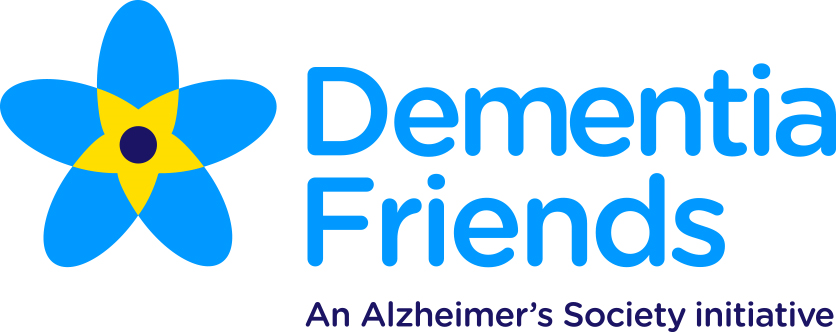MENTAL HEALTH
The practice does not offer counselling services itself. Patients with severe and enduring depression, or other mental illness, can have counselling as part of their treatment from the NHS mental health team. Under 16s have their own specialised counsellors available through the NHS paediatric services or through child and adolescent mental health services. For adults, alternative help is available from the following local services:
Local Support Services
| Service | Telephone | Website |
|---|---|---|
| Sexual Assault | CONIFER | CONTACTS by CONIFER |
| Relate | 01482 329621 | RELATE GOOLE |
| Samaritans | 116 123 | SAMARITANS |
| Victim Support | 0300 303 1976 | VICTIM SUPPORT |
If you are experiencing a mental health crisis, you can call a local NHS mental health helpline for 24-hour advice and support. You can call for yourself, your child, your parent or someone you care-for, If someone's life is at risk or they cannot be kept safe, call 999 or go to A & E.
URGENT SUPPORT - LETS TALK .... HULLEVERY MIND MATTERSNATIONAL HELPLINESFIND A LOCAL URGENT MENTAL HEALTH HELPLINEHUMBER NHS MENTAL HEALTH CRISIS INTERVENTION TEAMALCOHOLICS ANONALZHEIMERS SOCIETY ANXIETY UKBIPOLAR UKCALMCRUSE BEREAVEMENTEVERY MIND MATTERSALZHEIMERS SOCIETY ANXIETY UKBIPOLAR UKCALMEVERY MIND MATTERSGAMBLING HELPLINEGAMCAREMENCAPMENS HEALTH FORUMMENTAL HEALTH FORUMMINDNARCOTOCS ANONNO PANICNSPCCOCD ACTIONPAPYRUSREFUGE
RETHINKSAMARITANSSANEYOUNG MINDS

Most people experience feelings of loneliness from time to time. If this is affecting your life, there are things that you can do to help Support is available if you are suffering with depression, anxiety or stress. Try our Mood Self-Assessment tool on this page and click the links to find out more ways to improve how you are feeling.
LONELINESS - RED CROSSLONELINESS - YOUNG MINDSLONELINESS - MINDFEELING LONELY?LONELINESS - AGE UK
Humber Family Connections is a 12 week group programme for
the ‘supporters’ of individuals who present with difficulties that might be diagnosable as ‘borderline’ or ‘emotionally unstable’ personality disorder. This might be that person’s parent, sibling, partner, friend, son, daughter etc.
The programme is available to anyone registered with a GP in Hull or East Riding CCG areas. The supporter needs to be 18+ years old, but the age of the person they are supporting can be anything.
The supporter can attend the programme irrespective of whether
the supportee is in mental health services or not. The supportee does not attend Family Connections- it is to support the supporters in their own wellbeing and in learning skills themselves. The supportee won’t be informed of the supporter’s attendances, or vice versa.
You can self-refer by completing the form on the website

Mental Health & Wellbeing Coaches now available at our GP Practices .
Our new Mental Health & Wellbeing Coach will be based within our GP Practices supporting the low/moderate mental health needs of patients.
What does a Mental Health & Wellbeing Coach Support?

What to expect from the sessions?

Useful information about dementia
If you are worried about your memory or someone else’s memory the first thing to do is make an appointment with your GP. There are many reasons why someone may be showing signs similar to dementia. Dementia is not just about losing your memory. The word 'dementia' describes a set of symptoms that may include memory loss but can also affect the way you think, speak, perceive things, feel and behave.
Dementia is not a natural part of ageing. It doesn’t just affect older people. Over 42,000 people under 65 in the UK have dementia.
Dementia is caused by diseases of the brain. There are many different types of dementia and everyone’s dementia is different. Alzheimer’s disease is the most common cause of dementia. The specific symptoms that someone with dementia experiences will depend on the parts of the brain that are damaged and the disease that is causing the dementia.
People can still live well with dementia. Although there is no cure for dementia, scientists and researchers are working hard to find one. People with dementia can continue to lead an active, purposeful life and carry on doing the things that matter to them most.

Health trainers can help with a wide range of health problems including low mood, bereavement, sexual health, physical activity, housing support, dept support, covid-19 recovery, emotional well-being, weight management. smoking, alcohol, healthy eating, loneliness and isolation - and more.
LEAFLETCALL 0800 9177752WEBSITEHumber Recovery & Wellbeing College
The Humber Recovery and Wellbeing College are pleased to introduce a new and improved on-line service.
Recovery and Wellbeing Colleges take an educational approach to mental health, as opposed to the more traditional medical management. The aim of their services is to facilitate a range of free, informal and welcoming courses that support people in maintaining good mental and psysical health.
The new website is free to use and anyone can sign up for access to a series of courses and virtual sessions available 24/7, with the aim to support an individual’s mental health and wellbeing. These sessions include topics such as Stress Awareness, Resilience, Sleep Hygiene, Exploring Identity and Medication Management.
The website also includes the launch of a “Let’s Chat” series which has been co-produced with people who have lived experience with mental health. The aim of this series is to break down stigma and open up conversations, to facilitate additional support for those who may need it.
Students can track their wellbeing on the platform and useful signposting links are available, which point individuals to both local and national services should they require further support.